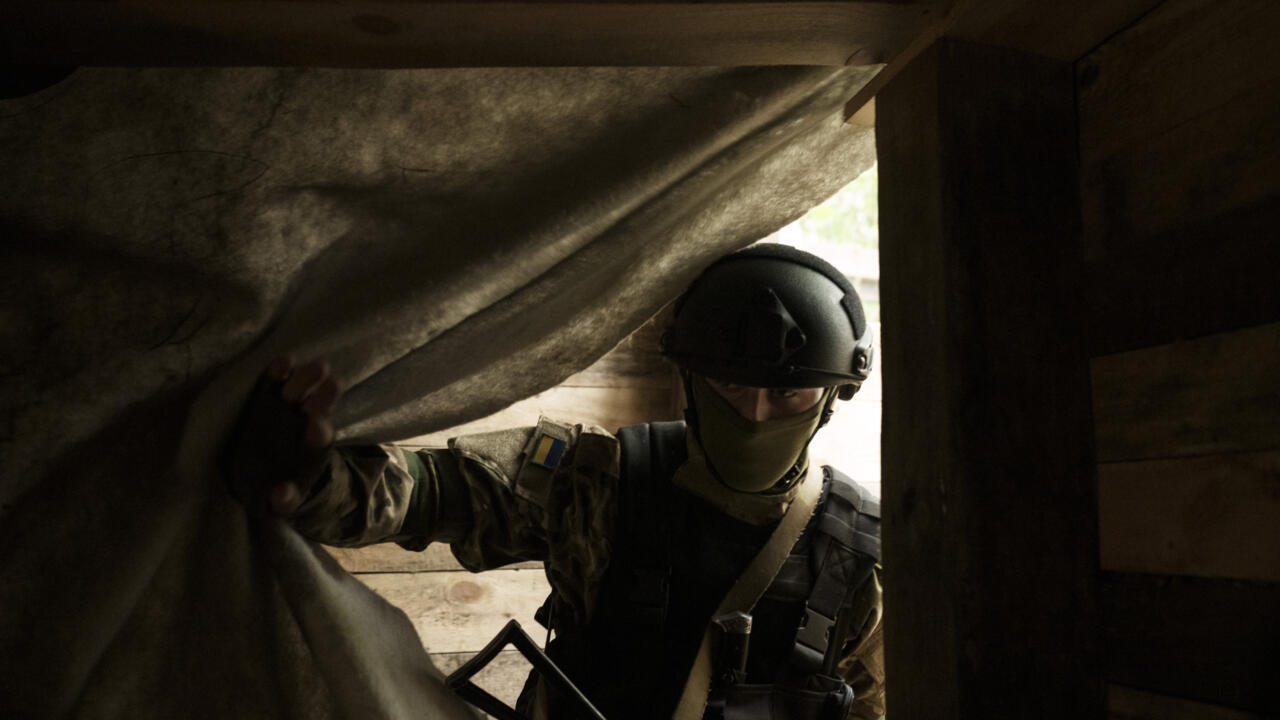How US intelligence views continuing the war in Ukraine
A member of the Ukrainian national guard in Kharkiv, May 9, 2022. AP - Felipe Dana
Text by: RFI Follow
3 mins
During a hearing in Congress on Tuesday, May 10, the head of American intelligence Avril Haines indicated that her services expected a prolonged conflict in Ukraine and that the Russian army continued its advance beyond the Donbass.
Advertisement
Read more
Having given up on seizing kyiv, the Russian army deployed in the south and east of the country, officially to "liberate" the separatist regions of Donetsk and Lugansk, in the Donbass.
The maneuver could give Moscow full control of the Sea of Azov and ensure territorial continuity with Crimea, which Moscow annexed in 2014.
But this repositioning around the Donbass "
is only temporary
", said Avril Haines during a hearing in Congress, at a time when elected officials are preparing to release a huge budget extension of 40 billion dollars for Ukraine.
“
We believe that President Putin is preparing for a protracted conflict in Ukraine, during which he still intends to achieve goals beyond Donbass
,” she continued.
According to the head of American intelligence, the Russian army wants to continue its advance to create a "
land bridge
" in southern Ukraine, to the large port of Odessa and to the Moldovan border.
The general mobilization hypothesis
US intelligence services believe that the Russian army intends to "
extend
" this land bridge to Transnistria, the region of Moldova which seceded in 1990, during the collapse of the Soviet Union, and where the Russian army has a military base.
But if it is “
possible
” that the Russian forces achieve this objective in the coming months, “
they will not be able to reach Transnistria and include Odessa without decreeing a form of general mobilization
”, underlined Avril Haines.
The Russian president "
is probably counting on a weakening of the determination of the United States and the European Union when the shortages of food goods and the rise in energy prices will worsen
", further warned the one who supervises the all US intelligence agencies, including the CIA and NSA.
Noting that Vladimir Putin's ambitions exceeded the capabilities of the Russian military, Avril Haines believes that the conflict in Ukraine risks taking "
a more unpredictable and potentially escalating trajectory
".
The head of the Kremlin could thus establish martial law and redirect military production.
Nuclear weapons in the event of an “
existential threat
”
The head of the military intelligence agency, General Scott Berrier, meanwhile reported a "
stalemate
" in the fighting between Russian and Ukrainian forces.
But that could change if Moscow formally declares war and mobilizes more forces, he noted.
Thousands of additional troops would then join the fighting, which would have "
mass effect
", the general warned.
Avril Haines reaffirmed that Washington does not believe that Vladimir Putin is ready to use nuclear weapons.
“
We continue to believe that President Putin will only order the use of nuclear weapons if he perceives an existential threat to the Russian state or regime
,” she noted.
The Russian president could nevertheless resort to it "
if he thinks that he is losing the war in Ukraine and that NATO is either intervening or preparing to intervene
", she specified.
But, even in this hypothesis, "
it is likely that he would send signals
" before doing so.
(
With
AFP)
© RFI
Newsletter
Receive all the international news directly in your mailbox
I subscribe
Follow all the international news by downloading the RFI application
google-play-badge_EN
Russia
Ukraine
United States
Intelligence

